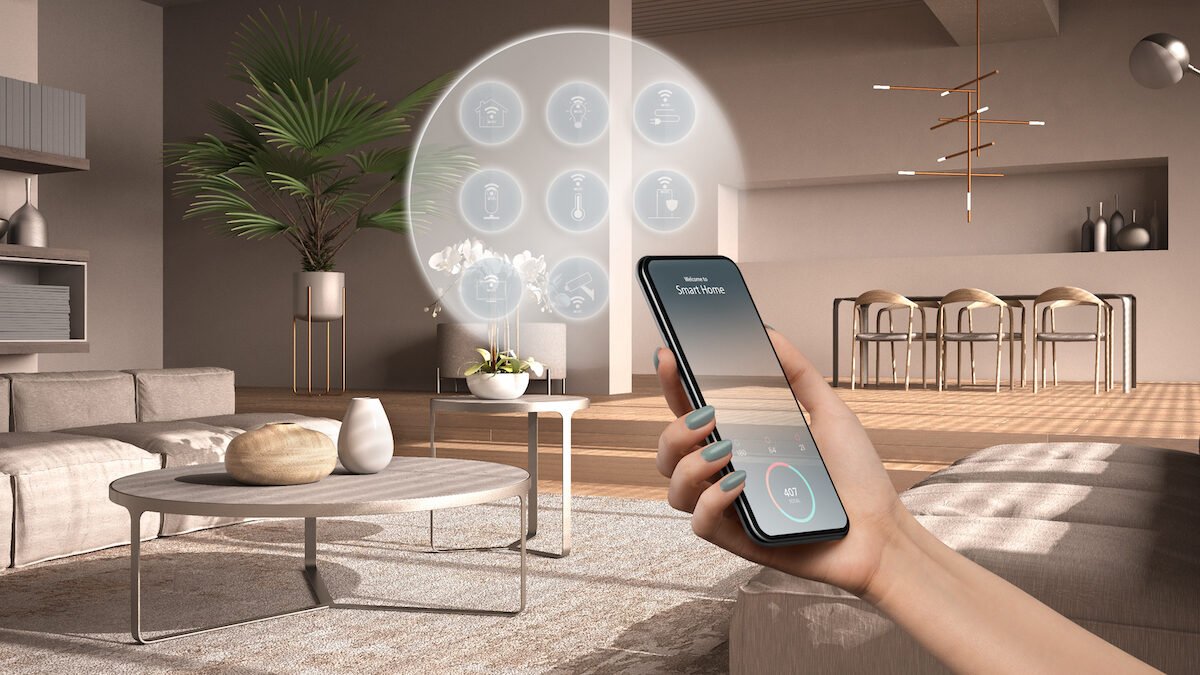Smart meters have soared in popularity.
© Archi-Viz / Shutterstock
Scientists from Heriot-Watt University are launching what is believed to be the world’s first open and remote access living lab to research and create solutions for Ambient Assisted Living (OpenAAL).
The multi-disciplinary lab will target the fast co-creation of scalable and affordable solutions to support the care of vulnerable people whose urgent need has been exemplified by the COVID-19 pandemic.
The project is funded by EPSRC under the Impact Acceleration Accounts scheme and has gained support from NHS Lothian, The Digital Health and Care Institute (DHI), Blackwood Home and Care Group, Consequential Robotics, Alcuris Ltd, Cyberselves and The Data Lab. The Coalition of Care and Support Providers in Scotland (CCPS) will play a key role in connecting the project to members in its supporting organisations. Additional collaborators from the care sector are now urged to join the project.
Part of the National Robotarium, based at Heriot-Watt University, the OpenAAL lab will use digital twin, Internet of Things (IoT) and Cloud technologies to provide a platform where researchers, industry and care providers, alongside end users of assisted living services, can co-create technology.
The platform, which utilises the facilities from Heriot-Watt’s existing living lab – a complete flat with adjoining workshop – will ensure both time and distance are no longer barriers to research and innovation. It is hoped that, as the project expands, researchers from all over the world may use the space to collaborate.
The project will initially support key priority groups in the UK whose conditions have been compounded by the social isolation measures necessitated by the pandemic. These include those with multi-morbidity conditions, disabilities, and those in acute stages of mental ill health.
Heriot-Watt has unique laboratory facilities and world-leading expertise. Its technologies can be used to enable non-intrusive monitoring of behaviour and vital signs, detect patterns and trends in behaviour and individual health statuses.
Dr Mauro Dragone, assistant professor, said: “Our priority is to ensure the devised solutions are practical and feasible, so they can be quickly implemented in the face of challenging social and economic conditions. There is huge potential to unify efforts and provide better support to the nation’s most vulnerable at this time. By combining the University’s unique laboratories with expertise in the care sector, we have the opportunity to tackle the current challenges head-on, but also establish long-term and cost-effective solutions to the wider challenges faced by individuals with assisted living needs in the home.
“Successful innovation in this field is crucial to alleviate the strain on our health and social care services and enhance the resilience of our communities. By collaborating across sectors and mobilising Scotland’s ground-breaking technology, this project has the potential to bridge considerable gaps in communication, break down institutional silos and facilitate wide-scale industry cooperation.”
The lab is welcoming support from producers, suppliers and service companies of assistive technology, telecare, telehealth, smart home solutions, and other Internet of Things products.




